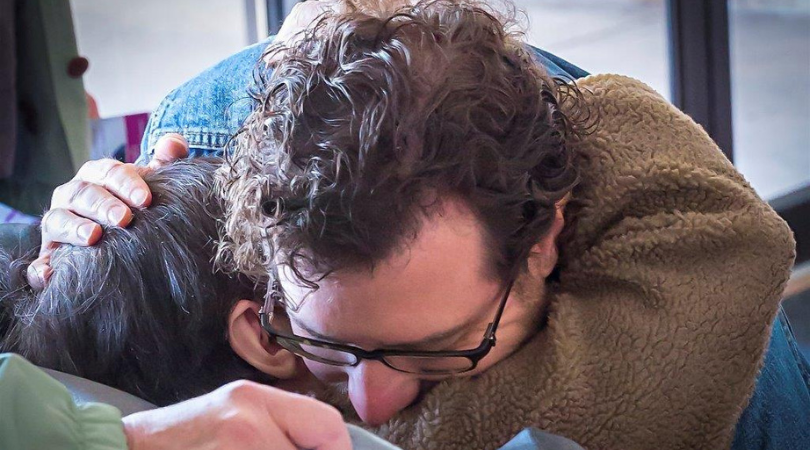Understanding the Difference Between Palliative vs Hospice Care

When it comes to end-of-life care, two terms that often come up are palliative care and hospice care. While these terms are related to each other, they have distinct differences in terms of their focus, goals, and the stage of illness they address. Understanding the difference between palliative care and hospice care is crucial in making informed decisions about the care and support needed for individuals with serious illnesses.
How is palliative care different than hospice?
Palliative care is a multidisciplinary approach aimed at providing relief from the symptoms and stress associated with serious illnesses. It can be provided alongside curative treatments in collaboration with the patient’s current care team.
Key aspects of palliative care include:
- Symptom Management: Palliative care focuses on managing symptoms such as nausea, shortness of breath, fatigue, and insomnia. The goal is to enhance comfort and improve the patient's overall well-being.
- Treatment Support: Palliative care is different from hospice in that it offers a team that works in conjunction with curative treatments by providing support and addressing the side effects and challenges associated with these treatments. It aims to help patients better tolerate and manage the impact of their treatment.
- Care Coordination: Palliative care involves a team of healthcare professionals who collaborate with the patient’s current physicians to provide coordinated care. They work together to ensure that the patient's physical, emotional, and psychosocial needs are met.

How is hospice care different from palliative care?
To understand the difference between hospice care and palliative care, it’s important to know that hospice care is a specialized form of care provided to individuals who have a terminal illness and a prognosis of six months or less to live. Hospice care focuses on enhancing the quality of life for patients in their final stages of life, with an emphasis on comfort and support for both the patient and their family.
Key aspects of hospice care include:
- End-of-Life Care: Hospice care is specifically designed for individuals who are no longer seeking curative treatment and have chosen to prioritize comfort and quality of life in their final stages. It provides support during the dying process and focuses on making patients as comfortable as possible.
- Symptom Management: Similar to palliative care, hospice care prioritizes symptom management to alleviate pain, discomfort, and distressing symptoms. The goal is to enhance the patient's comfort and dignity during their end-of-life journey.
- Emotional and Spiritual Support: Hospice care recognizes the emotional and spiritual needs of patients and their families during this challenging time. It offers counseling, bereavement support, and spiritual guidance to help individuals navigate the emotional complexities of facing death. Hospice care also extends support to the family members and loved ones of the patient, providing them with the necessary resources, education, and emotional support.
Although there are many differences between palliative care and hospice care, both are crucial components of providing comprehensive support to individuals with serious illnesses. While palliative care can be provided at any stage of a serious illness and focuses on improving quality of life, hospice care is specifically tailored for individuals in their final stages of life.
Is there a main difference between palliative care and hospice care?
The main difference between palliative care and hospice care lies in the patient’s current stage of illness and the goals of the care received. Palliative care is a holistic approach aimed at providing patients relief from the symptoms and stress associated with serious illnesses at any stage of the disease. It can be provided alongside curative treatments and is focused on improving the patient's quality of life by addressing physical, emotional, and psychosocial needs. Palliative care aims to enhance comfort, alleviate symptoms, and support patients and their families in making informed decisions about their care.
On the other hand, hospice care is specifically designed for individuals who have a terminal illness and a prognosis of six months or less to live. Hospice care prioritizes comfort and quality of life in the final stages of life, emphasizing symptom management, emotional and spiritual support, and assistance with end-of-life decision-making. Another key difference between palliative and hospice care is that hospice care is not intended to cure the underlying illness but rather to provide compassionate care and support during the dying process.
Is palliative care the last step before hospice?
When a patient's illness progresses to the point where curative treatments are no longer beneficial, they will be transitioned into hospice care, where the focus shifts from treatment to comfort and quality of life. It’s crucial for healthcare providers, patients, and families to engage in ongoing discussions about goals of care, treatment options, and prognosis to determine the appropriate timing for transitioning to hospice care. While hospice care include palliative care, in the efforts to treat pain and discomfort, a patient can receive palliative care at any time and for any length of time, and if they are cured of their condition or no longer require palliative care, they can simply go off it, without transitioning into hospice care. Hospice care is only for those at the end of their life.
Patients and their families may have concerns and questions about hospice care, including what services are provided, where care will be delivered, and how to access support. Crossroads offers informational resources, counseling, and support groups to help individuals and families navigate this transition and prepare for the end-of-life journey.
Crossroads Hospice & Palliative Care provides care and support to patients and their families facing serious illness. To learn more about our services, please call 1-855-327-4677 .
If you found this information helpful, please share it with your network and community.
Copyright © 2023 Crossroads Hospice. All rights reserved.




